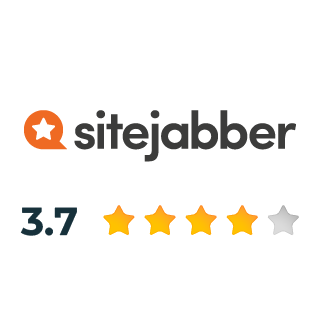Unfortunately, you are the only person with the answer as to why you should consider in-house or outsourcing development. To make a decision, consider individual preferences, the pros and cons of each, and the key features of both options. Here, the guide delineates the advantages and disadvantages of IT Outsourcing and In House Team choices for software development.
In-House Software Development –
In-house software development involves using company resources to build digital solutions and perform all software-related tasks. For this to succeed, the company should spend time and money assembling several specialists with the necessary expertise to run the project.
That said, in-house development is an excellent choice for companies with sufficient resources to recruit and hire developers and those looking for total control over the software development process. Below are the pros and cons of this option.
In-house advancement is the place where you get to fabricate your group without any preparation. Amazon and Paypal employ in-house designers, allowing them to control the project at a higher cost than other companies.
Picking in-house advancement is the same as employing extremely durable staff in your associations. You’ll have to go through the most common way of enlisting, interviews, and onboarding, to assemble your IT group. Assuming your startup is rigorously zeroing in on an IT item, it could be suitable to recruit in-house. We will discuss more about the Pros and Cons of IT Outsourcing and In House Team.
Merits of In-House Development –
You create a group that aligns with the culture of your organization. Fruitful organizations are driven by a cheerful group that epitomizes the organization’s basic beliefs. With in-house advancement, you have the valuable chance to pick colleagues that line up with the startup’s way of life. Working in cooperative energy leads to better outcomes, which can be missed when re-appropriating tasks.
Direct correspondence is a reasonable advantage of having an in-house group. An in-house group is only devoted to your organization, and regularly, the individuals are working inside an actual space. There are no requirements for bobbing messages around to convey the idea to the group. Having close and personal access can expedite conversations, especially when finalizing the venture’s requirements.
Prompt help is an honour that accompanies in-house advancement. Once you have sent another item, a few blemishes may appear. With an in-house group, examinations can be executed right away, and the fixes applied immediately. Assuming that you’re drawing in a rethought group, the reaction might be postponed as the group could be having their hands full right now.
Demerits Of In-House Development –
It’s expensive. Be ready to pay for the apparent and secret expense of employing an in-house group. As per Payscale, the normal compensation of an IT designer in the US costs $71,508. The costs involve various factors like benefits, downtime, and continued wages during idle periods.
The turnover rate can be high – Getting the best ability in your organization is the least issue. IT gifts are sought after, and you’ll make some intense memories fighting off poaching endeavours by contenders and scouts. You might wind up counteroffering your designer with better advantages, which winds up swelling the finances. Else, you’ll lose the abilities in your group.
Upskilling the group is your obligation. The IT business goes through consistent change, with the presentation of innovations, instruments, and dialects. Ensuring your team keeps pace with changes, especially impacting product development, is crucial. Investment in training and tools significantly impacts business profitability.
Pros of In-House Teams –
Total Control:
- as mentioned, with an in-house team, you can manage and control the process internally. The same is not true for outsourcing.
Immediate Work:
- unlike outsourcing, you will spend some time assembling your in-house team.
- After assembling them, they can commence working immediately on the project.
- The company’s competitive advantage is derived from its ability to employ in-house talent.
Better Understanding:
- the in-house development team will work on the software from the start to its completion.
- They gain a comprehensive understanding of software development outsourcing, which may take time to comprehend the project’s details.
Talent Development:
- developing talent is overly possible with an in-house team.
- Unlike outsourcing, you can shape your employees to grow in the best way.
- Employees provided with an opportunity to grow professionally also provide satisfactory results.
Possible Outsourcing:
- even as you run an in-house team, you can outsource your team as an MSP.
- This approach is suitable if your project is complete, and you need to provide full-time work for your team.
Cons of In-House Teams –
Quite Expensive:
- Contrary to outsourcing, insourcing represents a luxurious choice, particularly for small companies.
- As mentioned, you will need to invest heavily in the recruiting process.
- This involves renting a new office, equipping your workplace, and salaries for your new employees.
Time-consuming:
- Obtaining highly qualified software development staff can be a challenging task, requiring time and effort.
- To encourage the specialist to consider your project, you must provide them with attractive offers.
Absenteeism:
- you will need to spend more time and money hiring new staff if some team members fall sick or quit. This may affect the viability of the project.
Outsourced Software Development –
Outsourcing software development is a viable option, despite facing criticism. Outsourcing meaning can be derived from the name itself. Consider an outsourced software development option;
- Looking for an already pre-assembled team in the IT outsourcing market
- Don’t have time to put a team together
- Need assistance in one or two phases of software development
- Looking for experts with guaranteed prior experience.
Merits Of Outsourcing –
Better Command Over Cost:
- If you’re working in a nation where nearby abilities come at an exceptional expense, you’ll enjoy the benefit of re-appropriating.
- An IT firm can be attracted to countries with lower compensation rates and similar skill levels. Eastern European nations are one of the top objections to IT rethinking.
A Huge Pool Of Abilities:
- Re-appropriation allows you to expand your market beyond your local competitors.
- You’ll be spoilt of choices with a gigantic worldwide pool of ability to browse.
- It saves you the difficulty of flicking through many continues just to recruit the right engineer.
No Innovation Limitations:
- Tasks often require diverse skill sets, making it challenging to identify experts in certain fields.
- You can collaborate with several IT firms with advanced capabilities to create the necessary system.
- Do contact us if you are looking to Hire Developers.
Demerits Of Outsourced Development –
No Full Control:
- A re-appropriated group doesn’t only work for you on your task.
- This implies that you have little control over the turn of events, progress, and investigation.
- Without direct admittance to the group, you can be unaware of what’s going on with your undertaking.
- The response time for messages may take hours or days, and bug fixes are not quick.
Correspondence Boundary:
- If you’re moving to an IT firm most of the way across the earth, it will be difficult to plan a gathering because of the time region contrast.
- Language contrast is additionally an issue assuming the group head of the rethought group experiences issues in understanding your interests.
Trust Issues:
- Rethinking involves entrusting private data to an outsider engineer.
- You might worry about the office’s security policy and anticipate taking projects from competitors in the future.
- Along these lines, it’s essential to vet the office’s history and sign an NDA to safeguard your advantage legitimately.

Advantages of IT Outsourcing –
Fast Growth:
- by finding a good team from the global IT outsourcing market, you can hire the world’s best talent to ensure hassle-free growth.
- Outsourcing companies always take care of the recruiting process.
- All you need to do is to demand the required skills and expertise.
Staff Flexibility:
- with outsourced software development, you get to manage remote staff efficiently.
- Outsourcing allows you to scale up or down your staff to adapt to project requirements.
Cost-effective:
- with multiple software development outsourcing companies available, you can always find professionals offering affordable rates.
- You can select providers offering affordable rates.
Quick Turnaround:
- with the unmatched flexibility of outsourcing, you can speed up your software development process by adding more people to the team.
- Outsourcing companies also have streamlined project development processes that help with organizational issues.
Disadvantages of IT Outsourcing –
Poor Quality:
- outsourcing presents the risk of bad quality work.
- On several occasions, you might have to assign your in-house team to solve problems left by the outsourced team.
Less Control Over Daily Work:
- Despite occasional involvement in software development, outsourcing grants the lead project engineer greater visibility and control.
Communication Issues:
- the inception of multiple communication avenues has made it easy for people to communicate worldwide.
- However, communication issues during outsourcing arise due to differences in time zones and language barriers.
Bottom Line: In-House or Outsourced Teams?
Choosing between IT Outsourcing or an In House Team for software development can present a significant challenge. Nevertheless, ultimately your decision, weigh various software development aspects before choosing. Prefer an in-house team if you are planning a long-term project or in need of total control over the development process.
Strategizing Success: Navigating Between IT Outsourcing or In House Team for Optimal Solutions. Outsourcing is a better alternative for companies whose core competency isn’t IT. To cut software development expenses or save time, consider outsourcing. Prioritize thorough searches for quality development teams, whether in-house or outsourced.
The above insights can help choose between outsourcing or in-house options. Feel free to share an option that has worked for you in the comments section below.
Author’s Bio:
Thomas Glare knows all about IT outsourcing. In his remote career, he started out doing all sorts of work-from-home admin jobs before finally landing himself as a freelance copywriter. In his free time, Thomas likes to explore new games from the Novoline online provider.








































